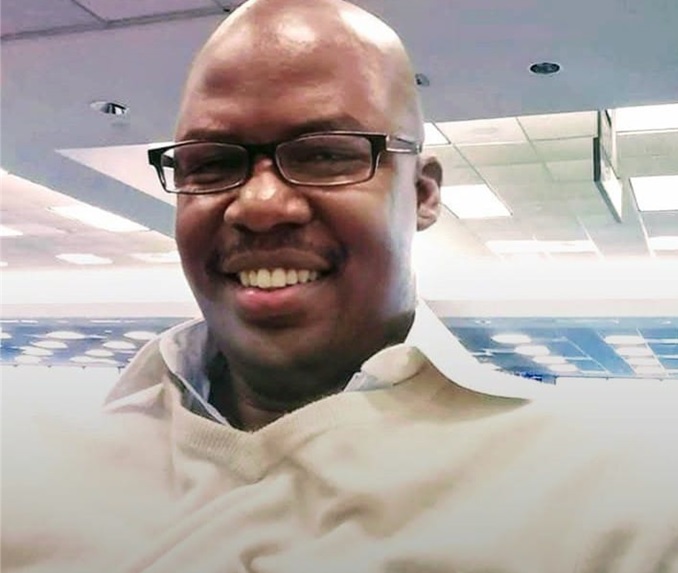By Al Smith, Criminal Justice & Homeland Security Specialist
In the past decades, the media has transformed the public perception of criminal justice. Criminal justice systems in different parts of the world have undergone major changes that have had profound effects. Knowledge of crime and justice from the public has been derived mostly from different forms of media.
Various research conducted has examined how the perception of victims, criminals, or policies related to criminal justice has been determined by how the media portrays criminal justice. According to some research, the media has presented crime stories in a manner that creates a false picture of crimes that promotes biases, prejudice, and stereotyping (Werner, 2015).
In this context, it can therefore be argued that there is a correlation between perceived neighborhood, age, income, education, gender, and police effectiveness in dealing with crime. Because the media and newspapers, for example, tend to focus more on crimes committed by a specific gender, race, age, and perceived neighborhood where the crime occurred. The representation and coverage of the media and newspapers thus overwhelmingly shape how people think and view crimes and the criminal justice system, whether the impressions are real or accurate.
Today, with the advancement of technology and communication, it is possible to get news as it is happening all over the world. As a result, the media and individuals have become obsessed with crime, with movies and novels brimming with both crime non-fiction and crime fiction genres, and newspapers, social media, and media devoting approximately 30% of their news coverage and presentation to crime.
However, some people oppose this mass media coverage of crime, as it can portray a distorted public perception of and attitudes towards crime and the efficiency of criminal justice systems, based on over-representation and exaggeration of certain 3 types of crimes, which can contribute to increased fear of crime, and public perception and attitude toward the efficiency of the criminal justice system in dealing with crime (Wright & Unah, 2017).
The media portrays various types of criminal justice differently (positively or negatively) based on the type of crime, the perpetrator, the neighborhood, or the community where the crime occurs. These representations have a greater impact on people with little or no exposure to the various types of criminal justice systems because they tend to rely on the media for news or information.
Thus, over-presentation or inaccurate portrayal of crimes can undermine the efficiency of justice and negatively affect public opinion and view on crime (Duke & Gaither, 2017). Lawyers, for example, are prevalent in the film industry and are portrayed in any genre, they are often presented as people who would do anything to win a case, including breaking the law or letting a convicted felon go free. Due to the similarities between lawyers in this media coverage, they are faced with false stereotyping.
Police officers, on the other hand, are often portrayed negatively, whether as dirty cops, police brutality, commanding, and harsh. Today, the actual news about law enforcement seems to prevail over the film and movie versions, which may result in the persistence of a stereotype that shapes and creates inaccurate views. Moreover, the least portrayed criminal justice systems are the correctional officers, who are also depicted as brutal, abusive, and violent.
These negative portrayals are crucial because they shape the community’s perception of the criminal justice system (Werner, 2015). Incorrect or misrepresentation of crime is contributing to a false perception of the justice systems worldwide and creates stereotypes that greatly impact the efficiency of criminal justice systems. An emphasis on sensational crimes and police officer killings at the detriment of the brutality that many at-risk neighborhoods deal with regularly, serious crimes that editors find newsworthy are covered in short stories or not at all.
People think about violence in one of two ways throughout their lives. Some people will be victims of violence and will make assumptions regarding the essence and situations of aggressive actions based on their own experiences. Others will never be personally affected by violent victimization; alternatively, they will read about it from the social networking sites of which they partake, news, and other examples of abuse in the newspapers, or other outlets.
Others can hear about abuse from a combination of primary and secondary sources (Lewis, 2017). Even so, since the commission’s findings, there has been a significant uptick in polling on what has later become known as fear of crime, and indices of fear are now regularly used in national surveys and regarded as relevant social metrics.
Most research on crime fear has been descriptive, the field is increasingly becoming more systematic and cumulative. We discuss the existing state of understanding around the fear of crime after considering certain philosophical questions related to fear (Lewis, 2017). Age, neighborhood, gender disparities and assumptions, as well as indirect knowledge of crime by advertising, interpersonal interactions, and knowledge of a victim of crime, have all been shown to be important factors in the representation of the fear of crime by individuals.
Individuals’ and society’s perceptions of crime are influenced by fear of crime. There are several significant consequences of fear, including changes in attitudes toward crime. Understanding the effects of this fear may be the first step in figuring out how to relieve any of the anxiety that people or societies may be experiencing.
However, the criminal justice system, lawmakers, and academics will also work to minimize the fear of crime. People should be less 5 frightened of crime if we concentrate on solving actual crimes and reducing real crime. But this might not be exactly accurate. Individuals’ views of the possibility of becoming a victim of a crime contribute to their distrust of crime. These assumptions are illogical and do not correspond to true crime victimization.
They do not correspond to a person’s actual danger. To reduce the fear of crime, society would need more than just measures that reduce crime rates (Lee & Mythen, 2018). One of the very first things that should be done is to avoid questioning whether a person’s fear of crime is justified because the validity of the fear isn’t the issue. Fear does not seem to be logical and debating the rationality of people’s fears dismisses that they feel that way in the first place.
The problem is that people and families are afraid of violence, which causes them to flee from society, which has detrimental consequences. There is a connection between age, education, perceived neighborhood, income and gender, and police effectiveness in solving crimes. This is because, for example, education on human rights and criminal justice policy has decreased police brutality.
Moreover, shows that school-taught research officials create fewer resident grievances. They are additionally ended less regularly for offense and more averse to utilizing power. Achieving significant policy change requires groundbreaking authority.
Advanced education can upgrade the administration capability of criminal equity experts and back their advancement through the positions (Jefferies, 2020). Cops with school experience are more centered on advancement and hope to resign at a higher position contrasted with officials with no school.
It should come as little amazement, at that point, those police executives, including police bosses, are bound to hold school and post-advanced education. Pioneers with advanced education are twice as liable to be acquainted with proof-based policing, which uses exploration to control viable approaches and practices.
Under gender, females are bound to impact in carrying out the rule of peace and law. Here are three different ways females are decidedly affecting law requirement practices: female officials are less inclined to utilize inordinate power; One of the two most generally recognized advantages of selecting more females for professions in criminal equity is the way in which women officials are more averse to utilize extreme power or pull their weapons; and they are litigants in claims definitely less regularly than men, saving districts millions in lawful expenses (Wright & Unah, 2017).
Youthful officials seem to represent an unbalanced number of legitimate murders, and it’s conceivable that the higher rates are because of more youthful officials being relegated to more perilous positions, while more established, more experienced officials will in general move to analyst work and office occupations (Jefferies,2020). Inspiration to cops can likewise prompt the successful execution of laws.
Thus, adding recompenses and expanding their compensations may prompt better administrations from the cops Police and local area individuals realize that their accomplishment in battling wrongdoing and building a solid network depends, in huge part, on making and keeping a solid relationship. Despite this information, police, and network time and again are not yet cooperating in an ideal manner. Furthermore, neglecting to make and keep up great police-local area relations isn’t a choice.
Uproars and profound local area questions have followed disputable occurrences, including official utilization of power. Most police pioneers realize that disregarding local area concerns isn’t an alternative and that those great relations are fundamental to successful policing, yet more should be done to construct and keep up those connections (Werner, 2015).
There are concerns about how society may be influenced due to different forms of media influence. Many people have the perception that criminal justice is backward in pursuit of justice. Media coverage influences the public’s perception of the criminal justice system, thereby increasing mistrust in law enforcement. Concerning the efficiency of the criminal justice system, the media plays a key role in agenda setting, where they influence the public perception and attitude towards the efficiency of the systems (Duke & Gaither, 2017).
The public is only able to discuss and give their views on issues based on agenda-setting provided by the media. generally, only stories that are deemed sensational about criminal justice receive media coverage. News reports on crime typically raise public concerns about crime, especially when the news is racist or leads to public support. Similarly, the media tends to exaggerate and saturate violent crimes, while ignoring common crimes such as property crimes and burglary to attract an audience mainly for their interest.
About the Author Al Smith holds a Master of Science in Criminal Justice with a concentration in Homeland Security from Colorado Technical University. He also holds a Bachelor of Science in Criminal Justice with a Concentration in Homeland Security Emergency Management program from Strayer University, and an Associate Degree in Criminal Justice from Everest College. He has been deployed twice (Force Protection) to NATO International Security Operations in the United States Department of Defense.







